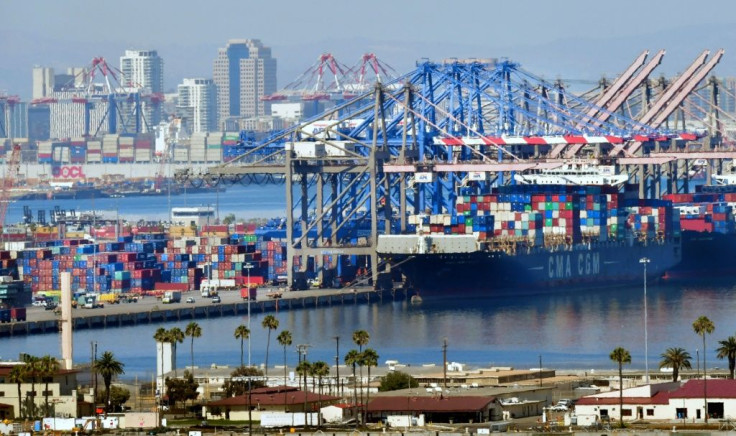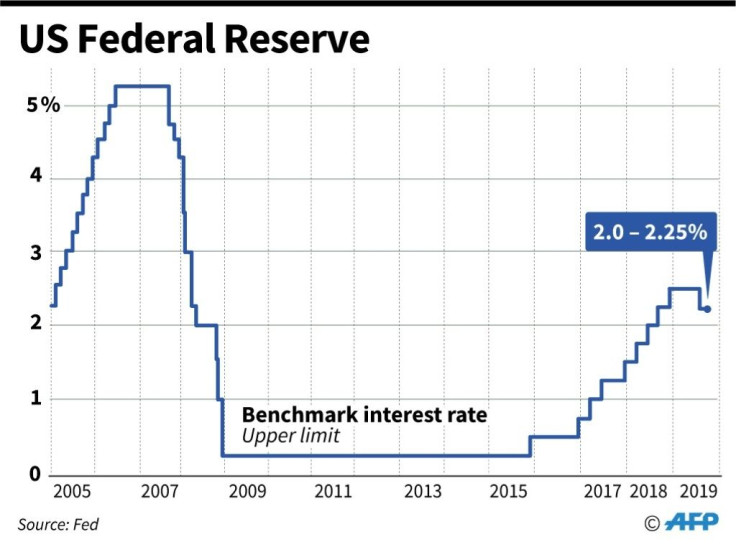Fed Says Coronavirus Causing Disruptions, Widespread Concern

The coronavirus outbreak has already disrupted travel and access to goods for US industry, and businesses nationwide sounded the warning that things could get worse, the Federal Reserve said Wednesday.
While activity in the world's largest economy continued to grow at a modest to moderate pace in recent weeks, the outlook was becoming more uncertain, according to the Fed's beige book survey.
The report contains dozens of mentions of the deadly virus, which said "producers feared further disruptions in the coming weeks."
Painting a picture of a widespread and growing impact, the report underscores the Fed's decision Tuesday to make an emergency interest rate cut to boost confidence and shore up the US economy.
"The coronavirus has entered the list of concerns, which still includes tariffs and tight labor markets," according to the Philadelphia Federal Reserve Bank.
And in Chicago, many manufacturers "expected a larger effect if the disruptions continued much longer."
Meanwhile, "local customers have been avoiding some of Philadelphia's Asian restaurants and shops, as unfounded fears spread," the report said.
Amid rising concerns about the virus and the damage to the global economy, the Fed's policy-setting committee on Tuesday slashed its key interest rate by a half point to a range of 1.0-1.25 percent -- the first inter-meeting cut since late 2008 at the height of the global financial crisis.
Fed Chair Jerome Powell said the move aimed "to help the US economy keep strong in the face of new risks to the economic outlook."

Treasury Secretary Steven Mnuchin applauded the Fed's action, calling it "very precautionary and the right thing to do. We're taking a whole of government approach."
But most investors expect the Fed to cut the benchmark borrowing rate again at the March 17-18 policy meeting to stem the economic uncertainty.
The US Congress is set to approve a $8 billion emergency spending package to combat the disease -- both the health and economic consequences.
The epidemic deflated the optimism felt after President Donald Trump signed a Phase One trade deal with China in January, calling a truce in the hostilities between the two economic powers, but leaving many tariffs in place.
Transportation, tourism and manufacturing all reported negative knock-on effects from the virus, as did the energy industry, since the outbreak has driven down oil prices.
The Richmond Fed noted that "several ports saw an increase in blank sailings -- that is shippers cancelling ports of call -- particularly from China."
And farmers in the Chicago region "expressed frustration that Chinese purchases of US agricultural goods had not yet materialized following the announcement of the Phase One trade deal and were concerned that the coronavirus outbreak would be used as an excuse for missing future trade targets."
As part of the initial deal after months of escalating tariffs, Beijing agreed to buy an additional $32 billion in American farm products over two years.
Economic data this week echoed the findings in the Fed survey, showing employment holding up -- with firms struggling to fill open positions. Services are still strong but concerned about the virus impact, while manufacturing already is feeling the pinch.
But economists warn it is too early to see the real damage to the US economy.
"There is a very high likelihood that second quarter growth will take a major hit," economist Joel Naroff said in an analysis.
© Copyright AFP 2024. All rights reserved.





















